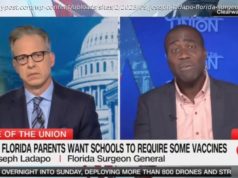Even before the COVID-19 pandemic spending increase, the budget deficit was approaching $1 trillion.
Donald Trump won the election. The House and Senate are in Republican hands. That means the GOP now owns the debt and its consequences. This responsibility, while too much for past politicians, presents the opportunity of a lifetime: namely, to be the ones who put the government back on fiscal track and, among other things, save entitlement programs from long-term disaster.
As a reminder, our debt is huge. It’s the size of the annual economy and is set to reach at least 166 percent of gross domestic product (GDP) in 30 years. Interest rates are high and have driven interest payments on that debt to levels not seen in a long time. These payments will eat up 20 percent of government revenue next year. If we exclude revenue earmarked for Social Security and, hence, already committed, that number is over 27 percent. It grows going forward and may even explode if interest rates end up higher than projected.
This isn’t just a government problem; it’s a you-and-me problem. A large body of literature shows that rising debt leads to higher interest rates and slows economic growth. The indebtedness crowds out private investment; reduces the ability of businesses to expand, innovate, and hire; and ultimately harms the very people policymakers aim to protect.
No matter how enticing the reason, when Uncle Sam takes larger slices of the economic pie, the portion left for productive private enterprises shrinks, resulting in a smaller, less dynamic economy and fewer opportunities.
Then there is the very real risk that our creditors demand higher interest rates in exchange for buying more treasuries, making the problem bigger.
Домой
United States
USA — Science Trump's First Term Wasn't Fiscally Responsible. Will His Second Be Different?






